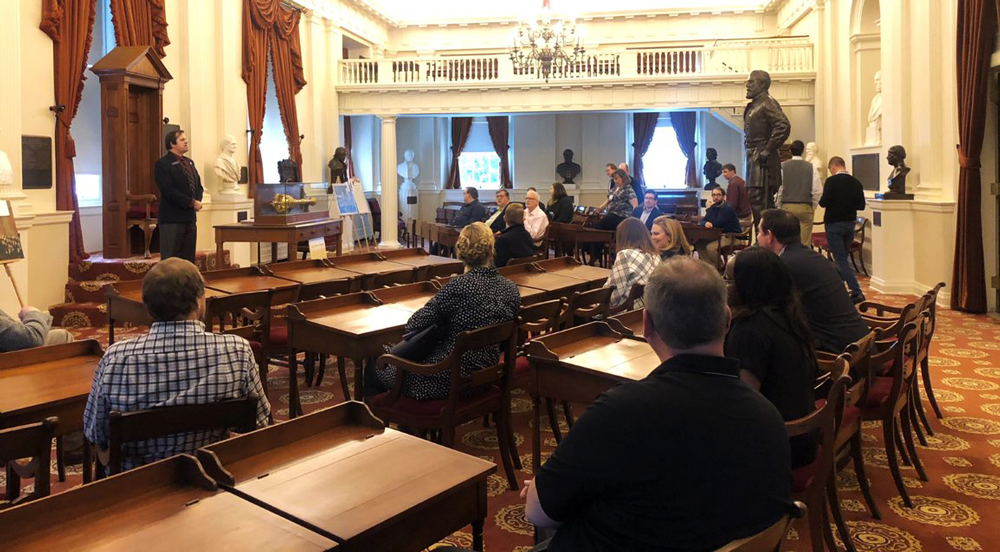3 Top Issues for Planners in 2020 State Legislatures

By the end of January, over 40 states had convened for 2020 legislative sessions, but planners began their groundwork before the year started.
Engaging State Legislatures: Top Trends
Testimony, meetings with legislators, and advocacy strategy in late 2019 were part of the 2020 preparation. In December, leaders from 21 APA chapters across the country discussed policy and developed strategies for advancing critical issues through workshops, training, and lessons learned from the past year.
Now, one month underway, it is evident there are trends in legislatures that will influence planners. Of course, state work isn't exclusive to legislators. Over half of the country's governors have delivered their "State of the State" addresses, which elevate the executive branch's priorities for the year, and many have their agendas for advancing state priorities.
Here are three trending issues for planners engaging state elected officials this year:
1. Housing
The trend of state legislation creating incentives for, or mandating, local housing reform continues into 2020. Some measures target housing costs, while others enable or require changes to local zoning. Bills enacted in 2019 paved the way for expanding these ideas across the country.
Last year, Oregon and Utah addressed single-family zoning, a pattern that is repeating itself in 2020 from California and Nebraska to Maryland and Virginia.
Texas presented a fight for local governments to maintain the ability to regulate building design, under the assumption that eliminating such regulations would reduce housing costs. This set up similar battles for Georgia, Florida, Indiana, and Oklahoma.
Woven into state conversations around zoning are mechanisms to enable accessory dwelling units. Planners engaging with elected officials on these housing issues is critical, as states determine how they can support local reform in a way that best suits the community's context.
2. Climate Change
New Jersey made headlines with Gov. Phil Murphy's Executive Order 100, the "Protecting Against Climate Threats Energy Master Plan" (PACT). Murphy's order calls for 100 percent clean energy by 2050, outlining seven strategies and action items for New Jersey's Department of Environmental Protection, including reforming environmental land use regulations to incorporate climate change considerations into permitting.
Washington legislators introduced a bill adding a climate change element to comprehensive plan guidelines. Other states are examining ways to increase spending and dedicated funding to prepare for disasters, such as wildfires, droughts, and floods.
Some of this work will be spearheaded by newly appointed leaders or councils, like Florida's Chief Resilience Officer or Maine's Climate Council, both established in 2019. The development of such positions creates space for increased legislative attention heading into this year.
3. 2020 Census
Since 2018, nearly every governor across the country has issued an executive order regarding the 2020 Census, many of which established a Complete Count Committee. Legislatures can support a fair and accurate census through funding outreach. With the count officially beginning in Alaska in January, state leaders and planners will continue taking steps to ensure that each community member is counted.

APA's state legislative committee leaders with Virginia historian Mark Greenough during a tour of the historic Virginia State Capitol. Photo by Catherine Hinshaw.
More Issues
Interested in learning what other issues are top of mind for states? Governing's "Biggest Issues to Watch in 2020" highlights a breadth of topics — take note that authors list housing, climate, and preemption.
Top image: Housing in New Orleans. Photo courtesy the U.S. Department of Housing and Urban Development.


